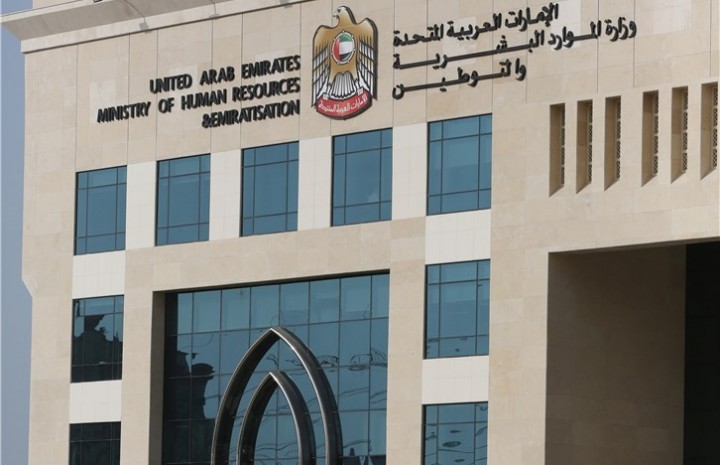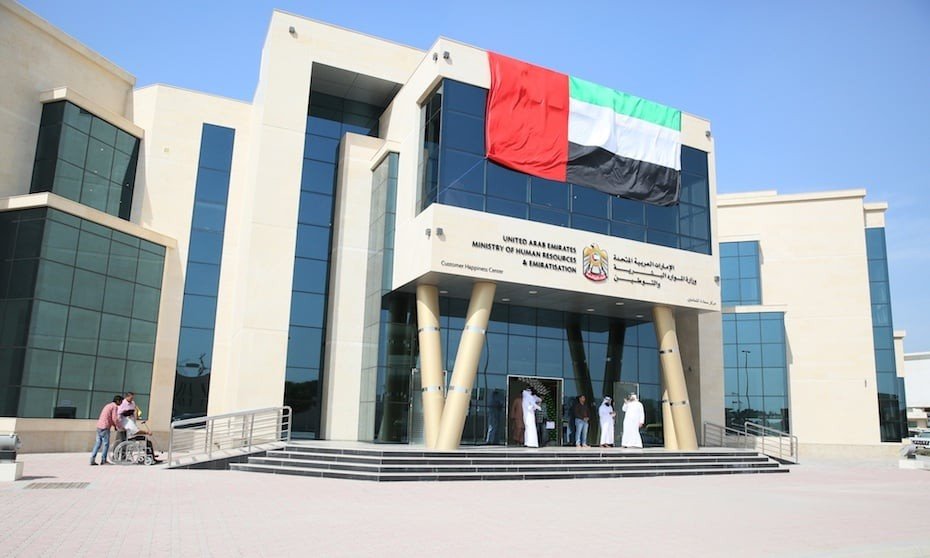UAE shuts down 11 unlicensed domestic worker recruitment offices in Al Ain, marking a strong enforcement action by the Ministry of Human Resources and Emiratisation (MoHRE) in collaboration with the Abu Dhabi Registration Authority (ADRA). In this operation, 11 offices operating without proper licensing were closed, reinforcing the UAE government’s commitment to legal compliance and the protection of both domestic workers and employers.
The UAE shuts down unlicensed domestic worker recruitment offices in Al Ain to ensure that recruitment practices remain transparent, fair, and accountable. Authorities emphasized that unlicensed offices pose risks, including worker exploitation, disputes with employers, and violations of labor laws. By taking this step, the government is sending a clear message that adherence to regulations is mandatory and that illegal recruitment operations will not be tolerated.
Why the UAE Took Action
Domestic worker recruitment is a sensitive sector that requires strict oversight. Offices that operate without licenses may fail to adhere to labor laws, resulting in unfair treatment of workers and disputes with employers. The UAE government recognizes these risks and has taken strong measures to prevent them.

The 11 offices in Al Ain were identified as operating illegally. Some were working without any official license, while others were using licenses issued outside Abu Dhabi. Both practices are violations of the Domestic Workers Law and its executive regulations. Authorities determined that these offices did not comply with legal requirements designed to safeguard domestic workers’ rights and ensure reliable recruitment services for employers.
The closure of these offices followed a series of investigations and inspections. Authorities noted repeated complaints from residents and employers regarding unmet commitments and irregular practices. By taking swift action, the UAE has reinforced the importance of compliance and accountability within the domestic worker recruitment sector.

Importance of Licensed Recruitment Offices
Licensed recruitment offices are a cornerstone of the UAE’s domestic worker regulations. They provide several benefits for both employers and workers, ensuring that recruitment is fair, transparent, and lawful.
Legal Compliance: Licensed offices are fully regulated by MoHRE, which ensures that they follow all domestic worker laws and regulations. This protects workers from exploitation and employers from legal complications.
Fair Practices: Licensed offices must follow strict rules for recruitment, including proper contracts, accurate representation of worker skills, and appropriate fee structures. This helps maintain trust and prevents disputes.
Worker Protection: Domestic workers are safeguarded through official documentation, proper contracts, and monitoring of working conditions. Licensed offices also provide support if workers face issues while working in households.
Employer Confidence: Using licensed offices gives employers assurance that they are hiring legitimate workers through approved channels. This prevents problems related to fraud, unqualified workers, or hidden fees.
The UAE government actively encourages all residents to verify the licensing status of recruitment offices before engaging their services. By doing so, both employers and workers are better protected, and the domestic worker sector remains fair and organized.
How the Shutdown Was Conducted
The closure of the 11 unlicensed offices in Al Ain involved coordinated efforts between MoHRE and ADRA. Authorities carried out inspections, identified violations, and issued closure notices to ensure immediate compliance.
The government also imposed legal, administrative, and financial penalties on the offending offices. Some were fined, while others faced prosecution under labor laws. The enforcement of these penalties serves as a warning to other offices operating outside the legal framework and reinforces the UAE’s commitment to maintaining high standards in the recruitment sector.
Additionally, authorities conducted awareness campaigns to educate the public about the risks of engaging unlicensed recruitment services. Residents were advised to consult MoHRE’s official list of licensed offices before hiring domestic workers. This proactive approach ensures transparency and accountability in recruitment processes.

Previous Measures to Regulate Recruitment
The UAE has been actively monitoring domestic worker recruitment practices for several years. Prior enforcement actions targeted offices that failed to comply with regulations, including improper fee collection, misleading information, and non-transparent service practices.
Authorities have also acted against unlicensed online recruitment activities. Several unverified social media accounts promoting domestic worker recruitment services were closed to prevent fraud and illegal operations. These measures illustrate the UAE’s commitment to safeguarding workers’ rights and ensuring that employers receive reliable services.
In addition to monitoring physical offices and digital platforms, the government has implemented a range of educational campaigns. These campaigns highlight the importance of licensed recruitment offices and the risks of engaging unlicensed providers. The combination of enforcement, awareness, and legal regulation strengthens the overall integrity of the domestic worker sector.
How Employers Can Protect Themselves
Employers play a critical role in maintaining a lawful and fair recruitment process. Engaging only licensed recruitment offices helps avoid potential legal and financial risks.
Here are key steps employers can take:
- Verify Licenses: Before hiring a domestic worker, confirm that the recruitment office is officially licensed by MoHRE.
- Check Contracts: Ensure that contracts are legal, transparent, and protect the rights of both parties.
- Monitor Practices: Observe recruitment practices, including fee payments, worker selection, and service packages.
- Report Violations: If any irregularities or illegal practices are noticed, report them immediately to MoHRE.
By following these steps, employers not only protect themselves from legal consequences but also contribute to a transparent and ethical recruitment sector.
How Workers Are Protected
Domestic workers benefit significantly from a regulated recruitment system. Licensed offices are required to provide proper contracts, transparent agreements, and fair treatment throughout the recruitment and employment process.
Key protections for domestic workers include:
- Transparent Contracts: Workers receive contracts that clearly define working hours, wages, leave, and responsibilities.
- Legal Rights: Workers are protected under labor laws, including access to dispute resolution mechanisms if issues arise.
- Support Services: Licensed offices provide assistance in case of disputes or challenges faced during employment.
- Health and Safety: The welfare of workers is closely monitored to ensure safe and fair working conditions.
These measures not only improve working conditions for domestic workers but also build trust between workers and employers.

Broader Implications for the UAE
The shutdown of 11 unlicensed offices in Al Ain is part of a larger effort to maintain the integrity of the domestic worker recruitment sector across the UAE. By strictly enforcing licensing laws, authorities ensure that the industry operates in a legal, transparent, and ethical manner.
This action also sends a strong message to potential violators: operating without a license carries significant legal and financial consequences. It highlights the UAE government’s commitment to protecting the rights of all parties involved, promoting fairness, and maintaining high standards of employment practices.
Furthermore, these measures enhance the UAE’s reputation as a country with strong labor protections. By ensuring that domestic worker recruitment is regulated and transparent, the UAE sets an example for other countries in the region.
Reporting Violations and Seeking Assistance
To maintain a lawful recruitment environment, MoHRE encourages both employers and domestic workers to report any violations. Reports can be submitted through digital channels, phone hotlines, or the Labor Claims and Advisory Centre.
By actively participating in reporting and monitoring, the public helps strengthen compliance and accountability in the recruitment sector. This collective effort ensures that domestic workers are treated fairly and employers receive reliable services from licensed offices.
Conclusion
The UAE shuts down unlicensed domestic worker recruitment offices in Al Ain as part of a strong commitment to law enforcement, ethical recruitment, and protection of workers’ rights. The closure of these 11 offices highlights the government’s determination to maintain a fair, transparent, and accountable domestic worker recruitment system.
Employers are urged to engage only licensed offices and verify their legal status. Meanwhile, domestic workers benefit from clear contracts, legal protections, and support services offered by licensed agencies.
Through coordinated inspections, strict penalties, and public awareness, the UAE ensures that the domestic worker recruitment sector remains professional, ethical, and reliable. This decisive action serves as a model for compliance, accountability, and fairness, ultimately strengthening trust between employers, workers, and the community.
The UAE continues to lead by example, demonstrating that strict enforcement of labor laws and ethical recruitment practices are essential for a thriving, safe, and responsible domestic worker industry.
Do follow UAE Stories on Instagram
Read Next – Esports World Cup 2025 Riyadh: 750M Viewers & $70M Prize Pool















